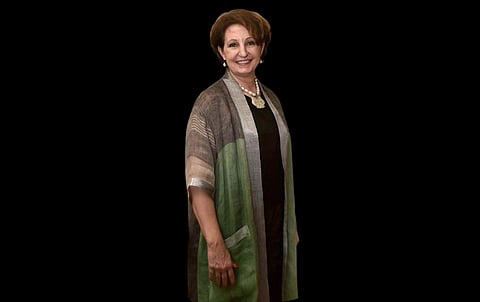

MaryKay Carlson is a woman who knows exactly what she's saying. And that applies whether you're chatting with her across a coffee table or on the other end of a twitter handle. Carlson, the Deputy Chief of Mission at the US Embassy in New Delhi was recently in Chennai and we managed to catch up with her ahead of the results of The New Indian Express - US Consulate General Chennai Flash Essay contest being announced. She spoke with incredible clarity on India decriminalising Article 377, the dark side of social media and the impact of trolls and why women in sports getting soft paddled is a form of discrimination. Excerpts from a quick chat:
We've had a lot of students talk about gender linked issues in our essay contest. How much do you think education can help bring about a change in the way we perceive gender and diversity?
I think education really is the key. It doesn't matter where you are in the world, whether you're in towns or smaller cities, I think the consciousness about gender identity is something all young people go through. And to have the knowledge, through education, that you're not the first person to go through that (is important) When you're young, and you don't understand those concepts it's very difficult, but when you see someone and say 'That person is like me', then you can overcome your fears and self doubts.
The fight for gender equality, as a movement, began in the US much earlier while India is now warming up to it. How far do you feel Indian women still have to go to achieve a degree of equality?
This is a perennial issue whether you're in the US or India and the concerns are all related. So even if you're highly educated, in a big city like New York, the glass ceiling is still there. Look at the #MeToo movement. Even when you're empowered, you're constrained by self doubt. I think it must be a particular challenge in smaller towns and that's why economic empowerment is important. That's why the US government stresses on partnering with women to give them economic power - to break out of stereotypes, to walk away, a means to survive and an ability to connect, to get information.
Television and movies today are considered a reflection of the times we live in, and yet, the young feel that they are riddled with stereotypes. Can the next generation change some of these stereotypes that we see in mass media?
I think the young can definitely break stereotypes. I see that in my own daughters, aged 18 and 20. My daughter, in the US, was playing basketball and the same coach coached the boys and the girls team. And my daughter tells me how the same coach makes the boys team pay for every mistake by making them run and when they mess up, he didn't make them do anything. The girls had a losing record and the boys, a winning one. She was angry that they weren't being made to run harder or do push-ups. The thing is, that's a form of discrimination also. She was 13 and she recognised it. Keeping with the sports analogy, that's why I loved Dangal which had men supporting women and their sports dream. Really, the first order of business is to listen to what women are saying. After that comes the fight for equality. Fight for the right to do push-ups.
When you did #SareeSearch, it broke twitter briefly. How do you think social media will shape the flow of information over next decade and does it have the potential to break a few gender stereotypes?
Social media is really a double-edged sword because what you hear from women, especially on platforms where you don't controls who sees what, women are discriminated against. They are trolled in a way that they have fears based on threats that are made at them. They are under extra scrutiny and extra threat and so they pull out of social media because they don't want their fathers or families to hear about it. You know, the Internet is huge on information about job opportunities, so they're losing out there. Social media is great to get the message out, but I've been trolled before, and that's OK, but it's something that everyone has to look at for themselves.
Article 377 being struck down was progressive and something that the LGBTQIA+ community has been waiting for. When do you think other genders can sort of feel mainstreamed?
It's a constant struggle. Once people understand that their neighbour is different, there'll be greater acceptance. I don't think there'll ever be a time when you can say check a box and say 'we're there'. Combatting discrimination is a process. The US government wants to support freedom of expression in all forms, central equality across the rainbow, if you will. Every pride month we've been lighting the embassy with the colours of the rainbow and working with other embassies to promote equality in all forms.
